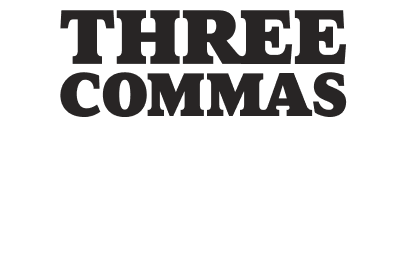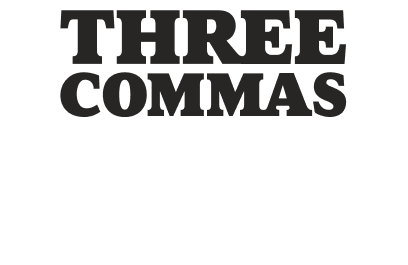Big banks’ marketing is oh-so slick: they position themselves as your concerned, generous friends who are right behind you as you build your business.
Yet the cold, hard truth, which is getting easier to see everyday, is this: the only thing banks pay to small business people and entrepreneurs is lip service.
How banks make money: monthly fees and overdraft charges (one bank VP named his boat Overdraft. How cute is that?). The only business being built from this scheme is the banks’ business, not yours.
In addition, nearly half of all Americans live paycheck to paycheck – and this is not the kind of customer that interests banks. And speaking of interest, have you checked the rate for savings accounts lately? Keep your loose change in that coffee can.
As banks don’t really give one be-bop about entrepreneurs and small business people, a growing number of them are voting with their feet and saying, “close my account.” It’s the financial equivalent of cable chord cutting, and it’s happening at a dizzying rate.
There is a new game in town that’s actually not so new, but it’s becoming a strong contender to banks: check-cashing businesses and payday loan establishments. Once considered as shady as loan sharks (and many of them were), they now are rewriting the rules of how non-wealthy Americans take control of their finances and their destiny – and the money they need right now.
In her book, “The Unbanking of America: How The New Middle Class Survives,” Lisa Servon explores the New National Normal. This is an inside look at how the American banking system is broken, and its customers are fleeing.
 Lisa is a professor of city planning at the University of Pennsylvania, but she takes time out to tell Three Commas about the state of the new banking industry.
Lisa is a professor of city planning at the University of Pennsylvania, but she takes time out to tell Three Commas about the state of the new banking industry.
RON: I guess the 2008 financial crisis was the very beginning of the ride down this rabbit hole.
LISA: It’s not just a one-off. If you look at the fines that the larger banks have had to pay, it’s a larger structural problem. There are patterns of abuse and deception.
RON: I would imagine that Millennials are also contributing to this sea change, as they are changing so many other things that used to be considered here to stay.
LISA: You see Millennials doing things differently. They didn’t grow up – as you and I did – going to the bank with their parents. They’re much more comfortable using cell phones and computers to do what they’re doing, and they’re the largest generation ever. So things are going to change. It’s only a matter of time.
What’s interesting is that the banks don’t really seem to be adapting. It’s not a sector that’s known for innovation. Some of the larger banks are not limber and flexible enough to move the way they need to.
RON: Payday loan joints and check-cashing places never had a good reputation, but here they suddenly are, with a shiny new coat! Everyone is taking a new and different look at them. Should we still be cautious?
LISA: The popular wisdom is that they’re all predatory, they’re all sleazy, they’re all trying to get over on their consumers. What I’m saying is that with any industry, you have good actors and bad actors. There is always a spectrum. Capitalism is set up for that.
They story we hear is that bankers are good and that these guys are bad -- and neither one of those things are true. The people I’ve worked with – especially the check cashers – they are small businesspeople.
Comparatively, their prices are pretty good. The people making decisions to use them are usually making very rational decisions, given their situation and given the other options that are available.
We’ve created this skewed debate of good vs. bad, and it’s actually more complex than that. The good guys aren’t the good guys and the bad guys aren’t the bad guys.
RON: Part of the appeal and effectiveness of your book is that you actually got down in the weeds, actually working at these places, to find out what’s what.
LISA: What I’ve tried to do in the book is refocus people’s attention onto the [customers]: here’s why people are making the decisions they are making. Here are what their options really are. And it’s set in the declining and deteriorating conditions for the American worker. You used to be able to go into a bank and get a $500 loan with a handshake. You can’t do that anymore.
My parents were schoolteachers and we didn’t live a fancy lifestyle, but they were able to buy a house, save for retirement, and save for my sisters and me to go to college. A lot of teachers now couldn’t do that. That’s the big background picture.
RON: That old feeling of putting your money in a bank and feeling safe – that’s over.
LISA: We have banking and policy sectors changing so that there is no guarantee that when you go into a bank and get a bank account that you are going to get a package of safe, affordable services.
The banks are trying to sell you as many products as they can in order to up their fee income. They used to not depend on fees. It was a different business model and it was a different policy environment. The whole game has changed.
RON: It really boils down to the customers the banks really want. And I don’t think it’s the average, middle-class person.
LISA: The banks don’t really care about serving the low-to-moderate-income customer. It’s hard to interpret the message differently.
In a way, I get it. They are for-profit companies. Their primary mission is to maximize profit for their shareholders. And that profit model has changed a lot. So banks are not making as much money as they used to, especially the larger ones. They’re making their money off of fees and international deals. The everyday customer has become a less important part of their business model, so it makes sense that they would give us less attention, because that’s not where their money is coming from anymore.
RON: What was it like to work in payday loan and check-cashing places?
LISA: I wasn’t thinking about my own banking history much when I started, but working in those places brought me back to the type of bank I went to as a child. With check cashers and payday lenders, people are in there all the time.
Don’t get me wrong, I love doing my banking online, and yet those kind of relationships that I had and my parents had are replicated at these places. There are relationships between the tellers and the customers, and that is certainly something people value.
I’m really glad I took the jobs, because I could really see how people were transacting their money. People would come in to get their check cashed, but we also do bill paying. They would spread their bills out in front of them on the counter, and pay this much to their phone bill and that much to Con Ed so that they don’t turn the lights off. We’d pay their bills, and whatever they had left over in cash was what they had until the next paycheck.
RON: Entrepreneurs and small businesspeople seem to benefit from this alternative.
LISA: I write about a guy named Carlos in the book. He’s a contractor. He has a big check, and I’ve seen the way he was working with his money and the fact that it made sense for him to cash the check and leave $100 on the table. That was basically to get the money today, because he needed to pay his workers in cash the next day.
The popular media has focused on why these people are paying so much, but when you’re there, you’re like, “oh, now I get it.”
So they are going to pay their bill now and there is no risk of overdrafting. There is no risk of that check getting lost in the mail. That bill is paid now and they know that there is money to do it. They pay the money and they know what they have left. There is no checking their account all the time to making sure their check cleared. It makes sense.
So rather than implying that people are ignorant for not doing their banking the way that you and I do, what I hoped to do was show that the decisions are rational, even if they are expensive.
RON: So it actually makes more sense than a bank. Imagine that.
LISA: Entrepreneurs don’t have a lot of margin, especially at that very small end where you are a sole proprietor, or if you have contractors working for you.
There is a real unevenness too – let’s just say, if you make stuff, you have to buy materials to fill the order and you may not be paid for 30 or 60 days.
Entrepreneurs always had this issue of very lumpy income streams. You need working capital. You need money to help you get by. I had talked to quite a few entrepreneurs who had taken out payday loans for just those situations.
A lot of small businesses use credit cards to finance their businesses – much of that credit was just removed from the market. So you have people who had figured out a way to operate using credit cards, for better or worse, but suddenly that’s not there for them. This larger environment helps explain why people have turned to other sources of credit.
As banks have gotten bigger, you’re less likely to have local bankers who know your business or know you. It’s harder for the small businessperson to go in and get a loan.
RON: As we discussed before, Millennials are changing consumer financial behavior that sidesteps banks, like online crowdfunding.
LISA: They’re certainly drawn to it. They’re comfortable getting money that way, but they’re also comfortable giving or lending money that way. It’s a change in consumer behavior, and it’s a really important one. Millennials talk to each other. That’s the way they get information.
The problems are structural. When you have such a change in the deal that the average worker gets, so much movement in the gig economy, and shifts from full-time work to part-time work, it doesn’t exist the same way.
Millennials are saying, “I don’t think I can buy a house and have a kid.” Things are changing, but we are still telling the myth of the American Dream, as though it’s still a reality. The game, the bargain, has fundamentally changed.
RON: Where are you seeing this going in the long-term?
LISA: I hope there will be enough of a potential to build a coalition around what so many people have in common but don’t realize. Things are screwed up, but there is a different kind of a wake up that’s happening.
Click here to find out more about Lisa Servon.


